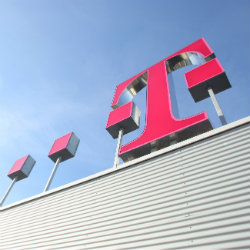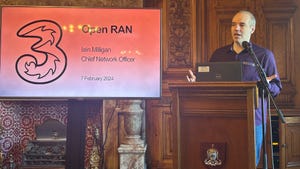
Deutsche Telekom has taken legal action against Germany's telecom regulator over the rules attached to the country's forthcoming auction of 5G spectrum, according to mainstream press reports originating with Die Welt newspaper.
The operator is reported to be unhappy about the stringent buildout requirements that will come with a 5G license. It is also said to be objecting to rules on national roaming that would force it to provide network services to rivals lacking their own infrastructure.
Deutsche Telekom AG (NYSE: DT) appears to have argued that any such roaming regulations would deter new entrants from building their own 5G networks and penalize the companies that have already made 5G investments.
Under rules drawn up last year, Germany is this month due to auction frequencies in the 2GHz and 3.6GHz spectrum bands for use with 5G, a next-generation mobile technology promising faster speeds and less packet delivery delay than today's 4G networks can deliver.
Operators including Deutsche Telekom, Vodafone Germany and Telefónica Deutschland GmbH have been invited to submit bids for new 5G licenses by January 25. Auction rules would require winners to cover 98% of households by 2022 in areas where they are licensed to provide 5G services.
The legal challenge from Deutsche Telekom appears to follow similar moves by Vodafone and Telefónica, the country's other mobile network operators. A drawn-out legal battle could hold up the 5G auction and delay the introduction of commercial 5G services in Germany.
That will be a concern for German authorities amid criticism that Europe is already lagging other parts of the world in the race to launch 5G services. (See South Korea's 5G Lead May Bring Industrial Advantage.)
Proponents of 5G say the technology will in future underpin services across a range of industry sectors and provide a much-needed spur to economic growth. Some German policymakers see 5G as a way of boosting productivity in the country's large manufacturing sector.
Deutsche Telekom has previously flagged plans to cover 99% of the German population, and 90% of the country's landmass, with a 5G network by the end of 2025. (See Deutsche Telekom targets 99% 5G coverage in Germany by 2025.)
Reports of its legal challenge came a few days after the national operator claimed to have installed another 1,300 basestations in 2018, bringing its total to about 27,000 across Germany. The operator aims to have deployed as many as 36,000 basestations by 2021 to support its launch of 5G services, which will rely mainly on higher frequency bands that require "denser" mobile networks.
Want to know more about 5G? Check out our dedicated 5G content channel here on
Light Reading.
Besides adding basestations, Deutsche Telekom also rolled out another 60,000km of optical fiber in 2018, giving it a network that now extends more than 500,000km. It has also built an additional 26,000 street cabinets for a total of 177,600.
The German operator says it has recorded connection speeds of 2 Gbit/s and a delay (or latency) or just 3 milliseconds during 5G tests in Berlin, where it has already installed basestations developed by Chinese equipment maker Huawei. (See DT Poised for 5G Launch as Huawei Antennas Go Up in Berlin.)
CEO Timotheus Höttges has urged other companies to ramp up their network investments in Germany. "I would like others to do more for the broadband buildout in the coming year," he said in a statement on Deutsche Telekom's website. "We need more cooperation, faster approval procedures and more courage to break new grounds."
While the legal challenge about coverage and roaming obligations is the focus of this week's news, there has previously been concern over the possible cost of new 5G spectrum. Germany's 3G auction at the turn of the century raised about €50 billion ($57 billion) and operators recently spent as much as €6.6 billion ($7.6 billion) during a recent 5G auction in Italy -- about €4 billion ($4.6 billion) more than Italian authorities were expecting. (See Italy's $7.6B 5G bonanza puts telcos on the rack.)
But a repeat seems unlikely during Germany's 5G auction: Regulators have not attached a high base price to the frequencies and do not appear to have structured the auction in a way that would drive up spectrum fees.
— Iain Morris, International Editor, Light Reading
Read more about:
EuropeAbout the Author(s)
You May Also Like












